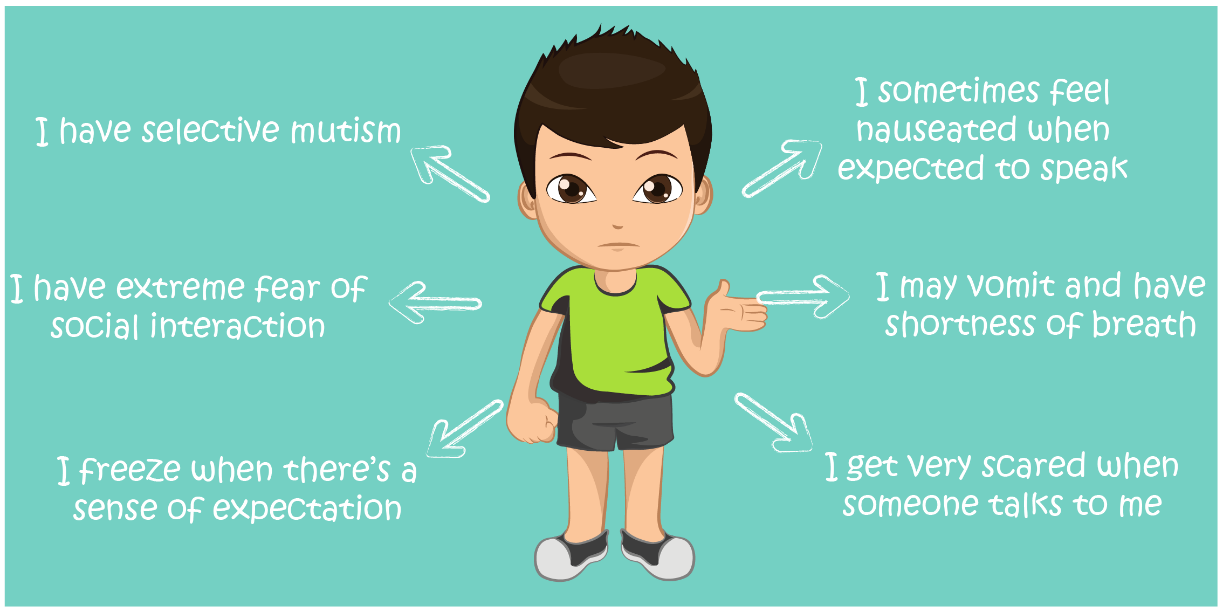My child is extremely talkative at home but he does not utter a word when we go out. Even at school, he never opens up. He has selective mutism.
What is selective mutism?
Selective mutism may be a type of anxiety disorder, which stems from extreme fear of social situations. It is frequently evident when children have a developmental delay in the areas of Social-Emotional Skills. While many parents dismiss it as the child’s unwillingness to speak, it is usually that the child is really unable to. The child might be lagging behind in acquiring age appropriate social emotional relatedness to people and might be have lower verbal expression abilities than that expected of their age.
This is usually reported by parents as something that the “child always has been like” but is evident more as the child starts attending regular classroom in mainstream school, most common in kids below the age of 5. It is a really painful condition because of the fear and anxiety kids with selective mutism go through in social situations. It is also difficult for the child to cope with the expectations of the teachers and parents to interact freely despite providing the best positive and reassuring environment.

Kids who are generally lively at home may feel shy in public but if your child simply does not talk even when spoken to or manifests physical symptoms of fear and nervousness, he is definitely suffering.
Selective mutism is often confused with speech delay or shyness. That’s why we advise that you observe for at least 2-3 weeks and take action if you see that the behavior is continuing.
It is unwise to ignore this situation because it only worsens with time. Over the years it will come in the way of your child’s participation in various activities, achievements, and social relationships.

What to do if your child has selective mutism
1. Understand that your child is not doing it on purpose. It is not a choice.
2. Don’t put them in the spot with too many questions. It will increase their anxiety.
3. Praise your child for trying to participate in activities.
4. Let your child breathe – do not expect answers immediately.
5. Talk to a child development professional or therapist. When paid attention to immediately, the condition
can be improved.
Do not give up! Your child is most comfortable with you and expects you to understand what he is going through. Of course, it may get frustrating or heart-breaking at times but it is important to stay strong for yourself and your child.


Add Comment